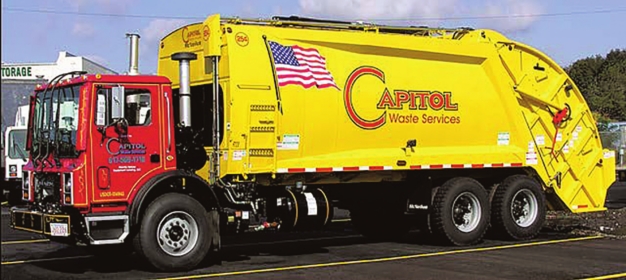
The South End Forum returned to its roots last week.
The neighborhood public forum began 12 years ago to talk about trash and build a long-term partnership with Boston Public Works (BPW), and that discussion continued with an update on the city’s garbage collection contracts, which were renewed in July of last year.
The new contract contains a $15 million budgetary increase over the previous contract, which was negotiated in 2019 just before the impact of COVID-19, lockdown years and accelerated inflation. At the forum, Dennis Roache, superintendent of waste reduction at the City of Boston, covered some of what the budgetary increase has provided for.
During the 2024-2025 fiscal year, public works will be purchasing or leasing 27 new collection trucks, 41% of the total fleet of 66 active trucks daily.
The new contract also budgets for and guarantees the staffing of two sanitation workers per truck, including recycling collection trucks. The $27 million earmarked for 129 dedicated staff members is an increase of 11 more laborers than the previous contract budgeted for.
It
also allows for higher wages for staff members and lowers overtime
costs by achieving earlier collection finish times since two laborers
per truck significantly increases the pace that a truck can complete its
route.
According to
Roache, trucks now complete their routes at least 3 hours earlier on
average. For the South End, that means collection beginning at 6am
should now be completed by 2-3pm, ahead of the targeted 3-4pm finish
time, instead of lagging behind at 5-6pm.
Roache
said that going into negotiation with the contract holder, Capital
Waste, their high financial demands were met with proportional demands
from the city regarding the service. Late finish times and missed
collection has been significantly reduced so far in the first year of
the new contract.
The
city saw a 27% reduction in complaints of missed trash collection from
2024 to 2025 year to date, and South End collection even did slightly
better, seeing a 32% reduction in complaints. Roache said that in his
time with BPW these numbers and the average time it takes to respond to
missed pickups are the lowest he’s seen.
BPW also acknowledged some of the acute challenges faced by waste collection in the South End.
The
early morning start time means the vast majority of residents will set
their trash out the night before. When hard plastic and metal containers
are not available this means plastic bags and carboard boxes are often
left out on the street overnight. Several residents at the forum
complained about bags being ripped open overnight and the contents
remaining in the street even after pickup on the following day.
The
BPW spokesperson said that the Boston Police Department is aware of
recurring incidents of people intentionally tearing the bags overnight
and is working to identify them. They also stressed the importance of
using sealed containers to prevent rats from tearing into bags and said
they were working on making more sealed containers available. The BRAP
Rat Committee, a cross-departmental effort with the Zero Waste team, is
evaluating containerization plans for each neighborhood.
Other
city initiatives aimed at waste reduction were also touched on briefly
at the forum. Roache expressed that he felt the most important change is
the addition of a new director of waste policy and planning to Boston’s
Zero Waste team. The new director will be focused on introducing
policies with an emphasis on mutual benefit to residents and
contractors.